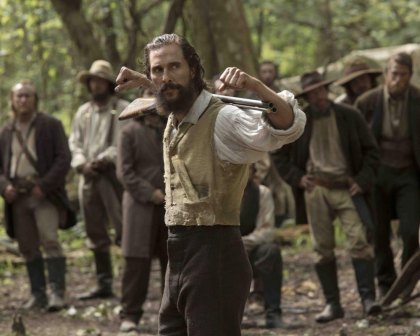
The movie, Free State of Jones, in theaters June 24, is based on the true story of Southern unionists during the Civil War. The protagonist is Newton Knight (Matthew McConaughey), a disgruntled Confederate soldier who led a rebellion within a rebellion. While the movie is set in Mississippi, unionists were also found in other Southern states, according to the book, The Civil War (Vintage Books;1990), by Geoffrey Ward, with Ric Burns and Ken Burns.
“By the war’s end,” they write, “unionists in every state in the Confederacy except South Carolina had sent regiments of white troops to fight for the North.”
Here is a brief overview:
Mississippi secedes: Abraham Lincoln was elected in November 1860. South Carolina seceded from the Union a month later. And in January 1861, Mississippi followed, along with Florida, Alabama, Georgia and Louisiana. (See the Library of Congress website.)
Newton Knight: The historical character portrayed by McConaughey was born in 1837 in Jones County, Mississippi. He was married to Serena Turner in 1858, and the two started their life together as farmers. Knight was opposed to secession, recounts Civil War Studies.org, an online publication of the Smithsonian Institution. But opponents of the war were labeled as traitors, and Knight enlisted in the rebel army in 1861. After a few months, he was furloughed to deal with his father’s illness. In 1862, he enlisted again, but later the same year, he deserted and headed back to Jones County.
A homefront in shambles: Knight returned to find Confederate tax collectors taking food from farmers to feed the troops. Along with other deserters, Knight operated from a Mississippi cave called the “Devil’s Den,” on an island in the Leaf River, recounts the book, The Civil War. The group “controlled most of Jones County. He [Knight] and his men ran off tax collectors, burned bridges and ambushed Confederate columns for nearly three years. Newspapers called their region 'the Kingdom of Jones.'”
Knight’s motives have been debated, but “most now see it as an economic revolt,” notes the movie’s website, “poor farmers who didn’t want to shoulder the burden of a war fought to benefit rich slave-holders. They called it a “rich man's war and poor man's fight.”
The war ends: After the war, Knight served as a commissioner in charge of distributing food in the Jones County area. He also rescued black children still held in slavery, the Smithsonian website recounts.
In the 1870s, Knight returned to his farm in Jasper County. His wife, Serena, left him. He married an African-American woman named Rachel, who had supplied him with food and information during the war. The two had several children. She died in 1889. Knight died in 1922.
Sources:
- Library of Congress: Timeline, The Civil War.
- The Civil War (Vintage Books;1990), by Geoffrey Ward, with Ric Burns and Ken Burns.
- The Smithsonian Institution: Civil War Studies.org.
- Free State of Jones: movie website.
Related:
What were Lincoln's accomplishments?
If you would like to comment give us a shout or like us on Facebook and tell us what you think.